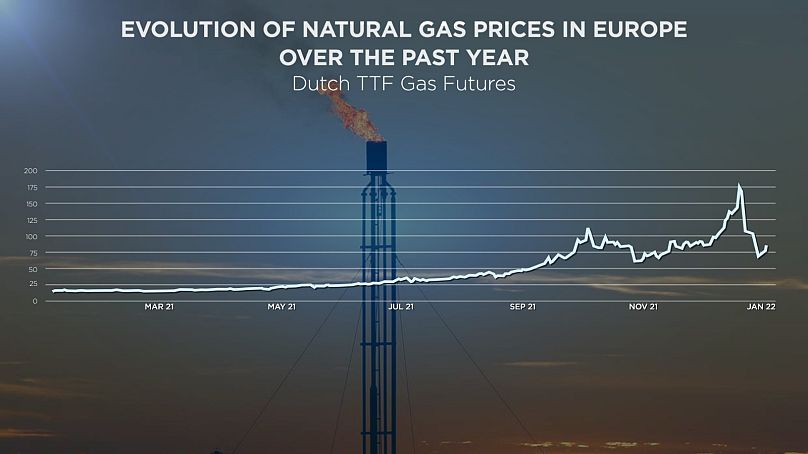They say they've worked overtime to mitigate Europe gas supply problems.
Polish coal miners are staging a blockade over what they say is insufficient pay as they have had to increase their work hours to mitigate the impact of the energy crisis gripping the country and Europe.
The two-day blockade started at 07:00 local time on Tuesday with miners blocking access of coal shipments to power plants.
"The protesters are demanding that miners be compensated for weekends worked," the Solidarity union said in a statement.
"For several months, due to the ongoing energy crisis throughout Europe, miners have been working overtime and on weekends, but they do not receive due remuneration for this," it added.
The blockade, the union said, is only meant to impact power supply to industry and not citizens.
It comes as European gas prices soared 30% on Tuesday due to low supplies from Russia with benchmark gas prices now more than fives times higher than they were in January 2021.
Data from German network operator Gascade showed that gas flows via the Yamal pipeline — which links Russia to Germany via Belarus — jumped in the eastward direction on Tuesday as Germany sent gas to Poland for the 15th consecutive day, instead of sending it towards Western Europe.
Supplies of Russian gas from Ukraine to Slovakia were also subdued.
Expectations for colder weather in Europe were also contributing to upward pressure on prices, but the low Russian gas flows were the main driver, a trader said.
Some European Union lawmakers have accused Russia, which supplies more than 40% of the bloc's natural gas, of using the crisis as leverage.
The country has deployed tens of thousands of troops along the border to Ukraine — through which most of the Russian gas supplying Europe transits — and demanded Kyiv renounce any aspiration to join NATO.
It has also rejected accusations by MEPs that it is restricting gas flows to Europe in a bid to secure approval for the completed Nord Stream 2 pipeline which will deliver gas to Germany through the Baltic Sea, thus bypassing Ukraine.
Moscow has denied accusations it is getting ready to invade Ukraine and says the newly-built pipeline will boost gas exports and help alleviate high prices in Europe. It has also said it is meeting its contractual obligations on gas deliveries.
Instead, Russian President Vladimir Putin blamed German gas importers for the soaring prices last month arguing that Germany was reselling Russian gas to Poland and Ukraine instead of relieving an overheated market.
NATO foreign ministers are scheduled to meet virtually on Friday before a meeting next week with Russian officials who will also hold talks with the US.












